Is Noosa Yogurt Healthy? A Complete Nutritional Guide. Discover the health benefits and concerns of Noosa yogurt. Learn about its ingredients, nutritional value, and how it compares to other yogurt brands.
Introduction to Noosa Yogurt
Yogurt is a go-to snack or meal for many health-conscious individuals, but is every type of yogurt healthy? One brand that stands out in the yogurt aisle is Noosa. Known for its rich, creamy texture and bold flavors, Noosa has built a dedicated following. But is Noosa yogurt truly healthy? In this article, we will dive deep into the nutritional value, ingredients, and health benefits of Noosa yogurt, while also addressing some potential concerns.
Is Noosa Yogurt Healthy
What Sets Noosa Yogurt Apart?

What makes Noosa yogurt different from other brands? It comes down to its unique combination of ingredients and production methods. Noosa yogurt is made with whole milk and a distinctive blend of probiotic cultures, giving it a thick, rich consistency and slightly tangy flavor. But unlike traditional Greek yogurts, Noosa adds a touch of cane sugar, resulting in a sweeter taste that sets it apart from the competition.
Is Noosa Yogurt Healthy
Ingredients of Noosa Yogurt
Let’s take a closer look at the key ingredients in Noosa yogurt that contribute to its flavor and nutritional profile.
Whole Milk
The base of Noosa yogurt is whole milk, which gives it its rich and creamy texture. While whole milk is often regarded as more calorie-dense than skim or low-fat alternatives, it also offers more vitamins and nutrients, such as vitamin D and calcium.
Cane Sugar
One of the distinguishing features of Noosa yogurt is the use of cane sugar to sweeten the product. While cane sugar is a natural sweetener, it is still an added sugar, and it’s important to consider the impact of added sugars on overall health.
Live and Active Cultures
Like other yogurts, Noosa contains live and active cultures, which are beneficial bacteria (probiotics) that can support digestive health. These cultures are essential for gut health and can help improve digestion and the balance of good bacteria in the stomach.
Is Noosa Yogurt Healthy
Nutritional Breakdown of Noosa Yogurt

Now that we’ve reviewed the ingredients, let’s break down the nutrition.
Calories
Noosa yogurt tends to be more calorie-dense compared to other yogurts. A typical serving (around 8 ounces) can range from 250 to 300 calories, depending on the flavor. This makes it a more indulgent snack, but one that can fit into a healthy diet when consumed in moderation.
Fat Content
Due to its use of whole milk, Noosa yogurt contains a higher fat content, specifically saturated fats. Each serving typically contains around 11 to 14 grams of fat, with about 8 grams of that being saturated fat.
Protein
On the plus side, Noosa yogurt offers a solid amount of protein, typically around 9 grams per serving. Protein is essential for muscle repair and keeping you full and satisfied.
Carbohydrates and Sugars
This is where Noosa yogurt raises some eyebrows. A serving can contain between 25 to 30 grams of carbohydrates, most of which come from sugar (often around 20 grams or more). This is significantly higher than many other yogurt brands, particularly Greek yogurt, which tends to have lower sugar content.
Is Noosa Yogurt Healthy
Health Benefits of Noosa Yogurt

- Rich in Protein
Noosa yogurt provides a substantial amount of protein, which is essential for muscle repair and overall body function. This makes it a great post-workout snack. - Source of Probiotics
It contains live cultures that support gut health. Probiotics can improve digestion and enhance your immune system. - High in Calcium
Noosa yogurt is an excellent source of calcium, which is vital for strong bones and teeth. Incorporating it into your diet can help meet your daily calcium needs. - Satisfying and Filling
The creamy texture and higher fat content can keep you feeling full longer. This can help reduce cravings and control snacking throughout the day. - Versatile Ingredient
You can use Noosa yogurt in various recipes, from smoothies to salad dressings. Its unique flavors add a delicious twist to meals. - Natural Ingredients
Made from whole milk and real fruit, Noosa avoids artificial preservatives and flavors, offering a more wholesome snack option. - Good Source of Energy
With its higher calorie content, Noosa yogurt can provide a quick energy boost, making it suitable for active individuals or those needing a nutritious snack. - Flavor Variety
With a range of flavors available, Noosa yogurt can satisfy sweet cravings without the guilt, allowing you to enjoy a treat while still being nutritious. - Supports Digestive Health
The probiotics in Noosa can help balance gut bacteria, which is essential for a healthy digestive system and can alleviate issues like bloating. - Convenient Snack Option
Noosa yogurt comes in portable containers, making it easy to grab and go. It’s a nutritious choice for busy lifestyles or on-the-road snacking.
Is Noosa Yogurt Healthy
Potential Concerns with Noosa Yogurt

High Sugar Content
Noosa yogurt can contain 20-30g of sugar per serving. This high sugar level may not be ideal for those monitoring their sugar intake, especially diabetics.
Caloric Density
With 250-300 calories per serving, it may not be suitable for those on calorie-restricted diets. It’s essential to watch portion sizes if you’re concerned about weight management.
Fat Content
The higher fat content (11-14g) might not align with low-fat dietary preferences. Those watching their saturated fat intake should consider this before indulging.
Potential Lactose Issues
Since Noosa yogurt is made from whole milk, it contains lactose, which may cause digestive issues for lactose-intolerant individuals.
Limited Probiotic Strains
While it does contain probiotics, Noosa may not have as diverse a range of strains as some other yogurts, potentially limiting its gut health benefits.
Cost
Noosa yogurt can be more expensive than other yogurt brands. This might not fit everyone’s budget, especially if consumed regularly.
Portion Size
The standard serving size is larger than many other yogurts, leading to higher intake of calories, sugar, and fat per serving compared to smaller portions.
Not Suitable for All Diets
Noosa yogurt may not fit well with strict diets like Keto or Paleo due to its sugar and dairy content.
Flavor Variations
Some flavored varieties can be overly sweet, which may not appeal to those who prefer less sweetened or more natural-tasting yogurt.
Added Sugars
The use of added sugars in some flavors could detract from the overall health benefits, making it less favorable than plain yogurt options.
Is Noosa Yogurt Healthy
Comparing Noosa to Other Yogurt Brands
How does Noosa yogurt stack up against other popular types of yogurt?
Noosa vs. Greek Yogurt
Greek yogurt is often praised for its high protein and low sugar content. While Noosa offers a good amount of protein, it’s generally higher in sugar and fat compared to Greek yogurt.
Noosa vs. Regular Yogurt
Regular yogurt is typically lower in fat and calories than Noosa, but it also tends to have less protein. Noosa’s creaminess and flavor may appeal to those looking for a more indulgent treat.
Noosa vs. Plant-Based Yogurts
For those who are lactose intolerant or following a plant-based diet, dairy-free yogurts made from almond, soy, or coconut milk can be a good alternative. However, these tend to be lower in protein than Noosa.
Is Noosa Yogurt Healthy
Is Noosa Yogurt Suitable for Weight Loss?

While Noosa yogurt can be part of a balanced diet, it’s not the best option for those strictly trying to lose weight due to its high calorie and sugar content.
Portion Control and Moderation
If you’re including Noosa in your diet while trying to lose weight, portion control is key. Stick to a smaller serving size and pair it with lower-calorie, high-fiber foods like fruits and vegetables.
Nutrient Density
Although it’s higher in calories, Noosa yogurt is nutrient-dense. It provides protein, calcium, and probiotics, which can help you feel satisfied for longer, reducing the need for unhealthy snacks.
Is Noosa Yogurt Healthy
Can Noosa Yogurt Be Part of a Balanced Diet?
Absolutely! When eaten in moderation and combined with other whole foods, Noosa yogurt can be a healthy addition to your diet.
Pairing with Whole Foods
For a balanced snack, pair Noosa yogurt with fresh fruit, nuts, or seeds. This adds fiber, healthy fats, and vitamins to your meal, making it more filling and nutritious.
Incorporating into Breakfast and Snacks
Noosa yogurt can also be a great base for breakfast parfaits or smoothies. Add granola, chia seeds, or berries to boost the nutritional content without adding too many extra calories.
Is Noosa Yogurt Healthy
The Role of Probiotics in Noosa Yogurt
Probiotics are one of the key benefits of yogurt. Noosa’s live cultures can help improve gut health by promoting the growth of beneficial bacteria, which can support digestion and immunity.
Is Noosa Yogurt Safe for Lactose-Intolerant Individuals?
Since Noosa is made from whole milk, it does contain lactose, which may not be suitable for lactose-intolerant individuals. However, some people with mild lactose intolerance may tolerate it in small amounts due to the presence of probiotics that aid in digestion.
Popular Flavors of Noosa Yogurt and Their Nutritional Value

Strawberry Rhubarb
One of the most popular flavors, Strawberry Rhubarb offers a sweet and tangy taste, but it’s also one of the higher-sugar options.
Honey
Honey-flavored Noosa yogurt is slightly lower in sugar compared to fruit varieties, making it a slightly better option for those looking to reduce sugar intake.
Blueberry
Blueberry is another fruit-flavored favorite, but like Strawberry Rhubarb, it can be high in sugar, so portion control is essential.
Is Noosa Yogurt Healthy
How to Enjoy Noosa Yogurt in Healthy Ways
You can enjoy Noosa yogurt in various healthy ways by pairing it with nutrient-rich foods or using it as a base for smoothies and parfaits. Keep the portion sizes moderate, and balance it with low-calorie, high-fiber additions like fruit or oats.
Noosa Yogurt in Popular Diets

Noosa yogurt may not be the best fit for strict Keto or Paleo diets due to its sugar content and use of dairy. However, it can be enjoyed occasionally as a treat if you follow a more flexible version of these diets.
Is Noosa Yogurt Healthy
How Does Noosa Yogurt Compare to Greek Yogurt in Terms of Nutrition?
| Nutrient | Noosa Yogurt | Greek Yogurt | Description |
|---|---|---|---|
| Protein | ~9g per serving | ~15-20g per serving | Greek yogurt typically has higher protein content, which aids in muscle repair and satiety. |
| Calories | 250-300 calories per serving | 120-160 calories per serving | Noosa yogurt has more calories due to whole milk and added sugars. |
| Fat Content | 11-14g per serving | 0-5g per serving (depending on fat level) | Noosa contains more fat because it uses whole milk, while Greek yogurt often comes in low-fat varieties. |
| Saturated Fat | ~8g per serving | 0-3g per serving | Greek yogurt has less saturated fat, making it a better choice for those watching cholesterol levels. |
| Sugar Content | 20-30g per serving | 6-9g per serving | Noosa’s added sugar makes it much sweeter, while Greek yogurt is more tart and lower in sugar. |
| Probiotics | Contains live cultures | Contains live cultures | Both yogurts offer probiotic benefits, but Greek yogurt often contains a wider range of bacterial strains. |
| Texture | Creamy and rich | Thick and slightly tangy | Noosa’s texture is creamier due to whole milk, while Greek yogurt has a thicker consistency. |
| Carbohydrates | 25-30g per serving | 7-10g per serving | Noosa is higher in carbs, mainly due to added sugars, while Greek yogurt has fewer carbs. |
| Calcium | ~20% of daily value per serving | ~15-20% of daily value per serving | Both are good sources of calcium, supporting bone health. |
| Serving Size | Typically 8 oz | Typically 6 oz | Noosa’s serving size is larger, contributing to higher calorie and sugar content. |
Key Insights:
- Watch sugar intake: Noosa contains significantly more sugar, so if you’re trying to limit sugar, Greek yogurt is a better option.
- Calorie count matters: Noosa’s higher calorie content may not be ideal for weight loss, whereas Greek yogurt offers a lighter alternative.
- Protein boost: Greek yogurt wins when it comes to protein, making it ideal for those needing extra protein post-workout.
- Fat-conscious choice: Noosa uses whole milk, increasing fat and saturated fat content. Greek yogurt has a lower fat profile.
- Texture preferences: If you prefer a creamier, richer yogurt, Noosa may appeal more. Greek yogurt is thicker but less sweet.
Is Noosa Yogurt Healthy
Is Noosa Yogurt Healthier Than Regular Yogurt?
| Nutrient | Noosa Yogurt | Regular Yogurt | Description |
|---|---|---|---|
| Protein | ~9g per serving | ~6g per serving | Noosa has more protein than regular yogurt, contributing to fullness. |
| Calories | 250-300 calories per serving | 150-170 calories per serving | Noosa is higher in calories, making regular yogurt a better option for those on calorie-restricted diets. |
| Fat Content | 11-14g per serving | 2-6g per serving | Noosa is higher in fat due to whole milk, while regular yogurt may have lower-fat versions. |
| Saturated Fat | ~8g per serving | ~3-5g per serving | Noosa contains more saturated fat, which can impact heart health if consumed in large amounts. |
| Sugar Content | 20-30g per serving | 12-20g per serving | Regular yogurt has less sugar than Noosa, making it a more suitable daily option. |
| Probiotics | Contains live cultures | Contains live cultures | Both contain probiotics, although strains may vary depending on the brand. |
| Texture | Rich and creamy | Light and smooth | Noosa’s richer texture stands out, while regular yogurt is often thinner. |
| Carbohydrates | 25-30g per serving | 18-25g per serving | Regular yogurt has fewer carbs, primarily due to less added sugar. |
| Calcium | ~20% of daily value per serving | ~15-20% of daily value per serving | Both types of yogurt provide a good amount of calcium, supporting bone health. |
| Serving Size | Typically 8 oz | Typically 6 oz | Noosa’s larger serving size contributes to its higher calorie, fat, and sugar levels. |
Key Insights:
- Calorie-wise: If you’re watching your caloric intake, regular yogurt is a lighter option compared to Noosa.
- Sugar content matters: Noosa contains more added sugars, making regular yogurt a healthier choice for everyday consumption.
- Fat and protein: Noosa offers more fat and protein, which can be beneficial for satiety but may not be ideal for those watching fat intake.
- Taste preference: Noosa’s creamier texture may appeal to those looking for a richer taste, while regular yogurt is more straightforward.
Is Noosa Yogurt Healthy
What Is the Difference Between Noosa Yogurt and Plant-Based Yogurts?
| Nutrient | Noosa Yogurt | Plant-Based Yogurt | Description |
|---|---|---|---|
| Protein | ~9g per serving | 2-7g per serving | Noosa has more protein due to its dairy base, while plant-based yogurts often need fortification. |
| Calories | 250-300 calories per serving | 120-180 calories per serving | Plant-based yogurts tend to be lower in calories compared to Noosa. |
| Fat Content | 11-14g per serving | 6-10g per serving | Noosa’s fat content is higher, while plant-based yogurts offer lower fat options, often using coconut or almond. |
| Saturated Fat | ~8g per serving | 3-6g per serving | Plant-based yogurts have varying saturated fat levels depending on the base, but most are lower than Noosa. |
| Sugar Content | 20-30g per serving | 10-18g per serving | Noosa is higher in sugar, while plant-based yogurts can vary but often contain less sugar. |
| Probiotics | Contains live cultures | Often contains live cultures | Both types may contain probiotics, though the strains in plant-based yogurts vary based on the product. |
| Texture | Creamy and rich | Lighter, sometimes slightly grainy | Noosa’s creamy texture is unique, whereas plant-based yogurts can be thinner or grainier. |
| Carbohydrates | 25-30g per serving | 12-20g per serving | Plant-based yogurts typically have fewer carbohydrates. |
| Calcium | ~20% of daily value per serving | 10-20% of daily value per serving | Noosa provides naturally occurring calcium, while plant-based yogurts are usually fortified with calcium. |
| Serving Size | Typically 8 oz | Typically 5-6 oz | Plant-based yogurt servings are usually smaller, contributing to lower calorie and sugar counts. |
Key Insights:
- Protein levels: Noosa is higher in protein compared to most plant-based options, making it a better choice for those seeking protein.
- Lower calories: If you’re looking for a lower-calorie option, plant-based yogurts are typically lighter than Noosa.
- Fat differences: While Noosa has more saturated fat due to whole milk, plant-based options may use healthier fats depending on the base.
- Texture preferences: If you prefer a rich, creamy texture, Noosa might be more satisfying than many plant-based varieties.
Is Noosa Yogurt Healthy
How Does the Sugar Content of Noosa Yogurt Compare to Other Yogurt Brands?
| Brand | Sugar Content (per serving) | Description |
|---|---|---|
| Noosa Yogurt | 20-30g | Noosa is higher in sugar compared to many other yogurt brands, largely due to added cane sugar. |
| Greek Yogurt | 6-9g | Greek yogurt typically has less sugar, as it is less sweetened. |
| Regular Yogurt | 12-20g | Regular yogurt falls somewhere in the middle, often containing moderate amounts of sugar. |
| Icelandic Yogurt | 4-8g | Icelandic yogurts (like Skyr) are very low in sugar, often with no added sugars. |
| Plant-Based Yogurt | 10-18g | Plant-based options vary, but they generally have lower sugar levels than Noosa. |
| Low-Fat Yogurt | 10-15g | Low-fat yogurts contain less sugar than Noosa, particularly if unsweetened or lightly sweetened. |
| Non-Dairy Yogurt | 8-12g | Non-dairy yogurts usually fall in the lower to moderate range of sugar content. |
| Keto Yogurt | 1-5g | Keto yogurts contain minimal sugar, as they are designed to be low-carb. |
| Flavored Yogurt | 12-25g | Flavored yogurts tend to have higher sugar content, though still less than Noosa. |
| Organic Yogurt | 8-15g | Organic yogurt is typically lower in sugar but can vary depending on the brand and flavor. |
Key Insights:
- Higher sugar levels: Noosa has significantly more sugar than many other brands, particularly compared to Greek and Icelandic yogurts.
- Low-carb options: If you’re trying to reduce sugar intake, keto or plain Greek yogurt would be a better choice.
- Flavored risks: Both Noosa and other flavored yogurts contain higher sugar, but Noosa tends to have more added sweeteners.
Is Noosa Yogurt Healthy
Is Noosa Yogurt a Better Option for Probiotics Than Other Types of Yogurt?
| Yogurt Type | Probiotic Content | Description |
|---|---|---|
| Noosa Yogurt | Contains live cultures | Noosa contains probiotics, but the variety of strains may be fewer compared to some other types. |
| Greek Yogurt | Contains live cultures | Greek yogurt usually has a higher variety of probiotic strains, aiding in better gut health. |
| Icelandic Yogurt | Contains live cultures | Icelandic yogurt (Skyr) is also high in probiotics, similar to Greek yogurt but typically with less sugar. |
| Plant-Based Yogurt | Contains live cultures | Many plant-based yogurts are fortified with probiotics but may have fewer strains than dairy yogurts. |
| Kefir | High in probiotics | Kefir is a liquid yogurt with more diverse probiotic strains, making it highly beneficial for gut health. |
| Organic Yogurt | Contains live cultures | Organic yogurt usually contains a good range of probiotic strains, especially in unsweetened varieties. |
| Non-Dairy Yogurt | Contains live cultures | Non-dairy yogurts offer probiotics but may have less diversity compared to dairy-based options. |
| Low-Fat Yogurt | Contains live cultures | Low-fat yogurts still contain probiotics but may not offer the same richness in strains as full-fat options. |
| Keto Yogurt | May contain live cultures | Keto yogurts sometimes contain probiotics, but the focus is on being low-carb, not probiotic content. |
| Flavored Yogurt | Contains live cultures | Flavored yogurts have probiotics but often with added sugars, which can reduce overall gut health benefits. |
Key Insights:
- Probiotic diversity: Noosa offers probiotics, but Greek and Icelandic yogurts provide more diverse strains for optimal gut health.
- Sugar impact: Noosa’s high sugar content can lessen the overall gut health benefits compared to lower-sugar alternatives.
- Best probiotic option: For a higher probiotic benefit, kefir or Greek yogurt would be better choices than Noosa.
Is Noosa Yogurt Healthy
Conclusion: Is Noosa Yogurt Healthy?
Noosa yogurt is a rich, flavorful option that can be a part of a healthy diet when enjoyed in moderation. While its higher sugar and calorie content might not make it the best choice for those on weight loss plans or low-sugar diets, it does offer nutritional benefits like protein, calcium, and probiotics. Pair it with other healthy foods, and you’ve got a satisfying snack or meal.
FAQs: Is Noosa Yogurt Healthy?
- Is Noosa yogurt good for weight loss?
It can be enjoyed in moderation, but due to its high calorie and sugar content, it may not be ideal for strict weight loss diets. - Does Noosa yogurt contain probiotics?
Yes, Noosa yogurt contains live and active cultures, which offer probiotic benefits for gut health. - Is Noosa yogurt gluten-free?
Yes, Noosa yogurt is gluten-free and suitable for those with gluten sensitivities. - Can lactose-intolerant people eat Noosa yogurt?
Noosa contains lactose, but some lactose-intolerant individuals may tolerate small amounts due to the probiotics. - What’s the healthiest flavor of Noosa yogurt?
Honey tends to be lower in sugar compared to fruit-flavored varieties, making it a slightly healthier option.
Click here to know more about weight loss. Subscribe to Workout with Hunar for weight loss and workout videos.
Is Noosa Yogurt Healthy








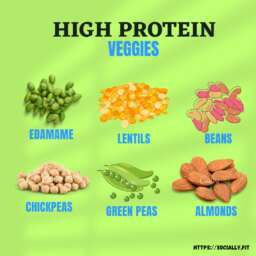
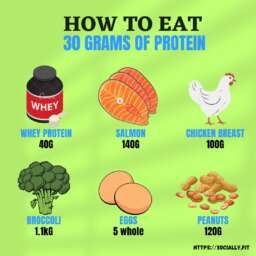
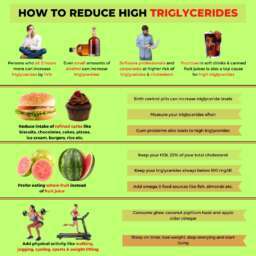
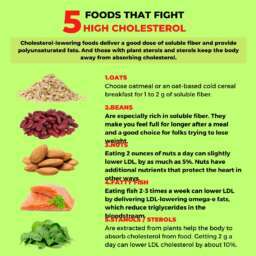
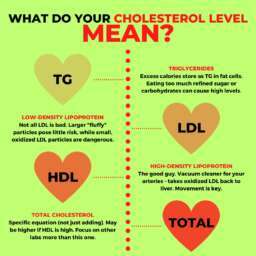


One thought on “Is Noosa Yogurt Healthy?”